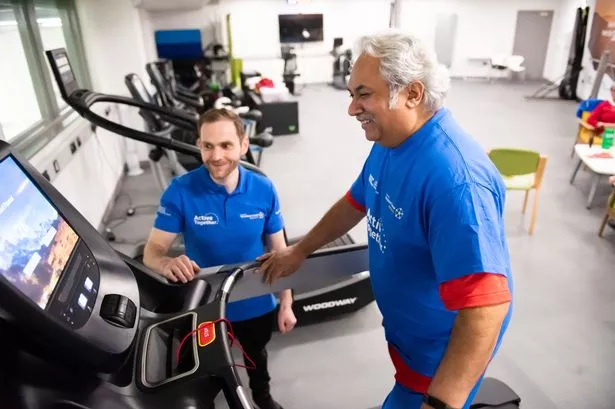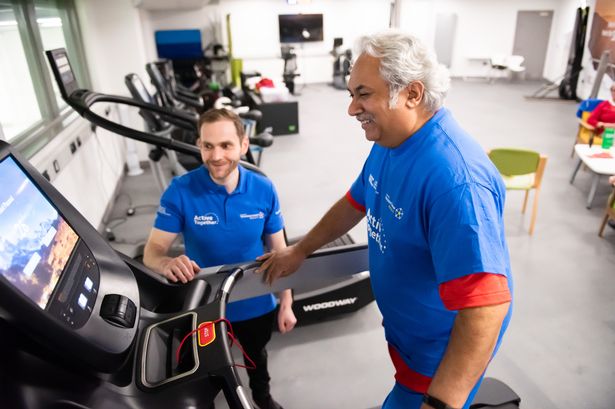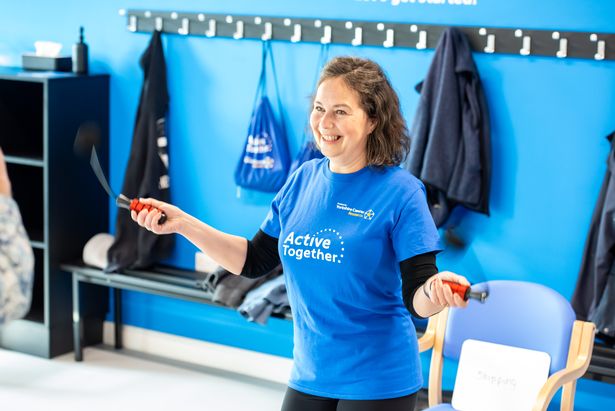
The NHS Humber Health Partnership and Yorkshire Cancer Research is bringing its pioneering Active Together service to people living in the city
People with cancer in Hull will soon be able to benefit from ‘research-backed exercise treatment’ designed to increase survival and reduce the risk of cancer coming back, the NHS has revealed. In partnership with NHS Humber Health Partnership, Yorkshire Cancer Research is bringing its pioneering Active Together service to people living in the city through a dedicated new centre due to open in early 2026.
More than 2,000 people across Yorkshire have reportedly benefitted from Active Together, which was designed by researchers at Sheffield Hallam University’s Advanced Wellbeing Research Centre to help people prepare for and recover from cancer treatment. Active Together is based on growing scientific evidence that exercise before, during and after cancer treatment can save lives by increasing treatment options, building fitness before surgery, reducing side effects from treatment, reducing complications from surgery and speeding up recovery.
The service is already provided in Sheffield, Doncaster, Barnsley, Rotherham, Wakefield, North Kirklees, Skipton, Keighley, and Harrogate. Bringing Active Together to Hull will help address inequalities that mean people living in the city are disproportionately impacted by cancer, The Humber Health Partnership and Yorkshire Cancer Research said.
Nicky Hill, Head of Active Together at Yorkshire Cancer Research, said: “Active Together is helping to shape the future of cancer care in Yorkshire and beyond, offering evidence-based support that empowers people to take an active role in their recovery. Evidence shows exercise is an effective way to improve survival for people with cancer.
“This new centre in Hull will provide vital support at a time when people need it most, helping them feel stronger and recover faster. It will also help create a community for people with cancer by bringing the opportunity to meet other people going through a similar experience. Our goal is to make exercise treatment available to everyone with cancer, wherever they live.”
Katherine Durrans, Head of Dietetics and Deputy Head of Therapies at NHS Humber Health Partnership, added: “We’re really pleased to be working with Yorkshire Cancer Research to bring this exciting programme to Hull and the surrounding area. By working together, we’re looking to transform and improve the health outcomes of local people recently diagnosed with cancer.
“Based in a dedicated new facility in central Hull, our specialist teams are looking forward to being able to support suitable patients under the care of the Queen’s Centre for Oncology and Haematology, and make a positive difference to their lives. The rehabilitation programme will be delivered by a range of healthcare and exercise professionals focussing on nutrition, physical activity and psychological wellbeing. This new opportunity will help people with cancer prepare for and recover from treatment quickly and maintain a healthy lifestyle after their cancer diagnosis.”
Keen golfer Anne Barker has welcomed the opening of Active Together in Hull after being diagnosed with breast cancer in October 2021. She went on to have a lumpectomy and radiotherapy at Castle Hill Hospital and chose to continue being active during her treatment to help reduce side effects.
As well as playing golf, Anne also regularly joined a group for people affected by cancer called 5k Your Way, which aims to ‘inspire, support and empower people to move against cancer’. The group meets at Beverley Westwood parkrun once a month.
Anne, who will now take a hormone treatment for five years, said: “Being active during and after treatment for breast cancer helped me cope both physically and emotionally. I continued to play golf, despite days when I was struggling with fatigue, because I knew being active would help me overcome this side effect of treatment.
“When I joined the monthly Beverley 5K Your Way, I met others diagnosed with cancer also wanting to be active. This provided a purpose and connection just when I needed it.
“Being active can provide a lifeline and can be seen as more than just exercise when combatting the effects of cancer and the treatment. Having opportunities for more people in Yorkshire to exercise when faced with a cancer diagnosis will be worthwhile.”
Through the service, Yorkshire Cancer Research aims to demonstrate the life-saving impact of personalised exercise to the worldwide research community and to those who deliver cancer treatment, including the NHS, so that exercise can be prescribed to everyone with cancer, no matter who they are or where they live. Located at Cherry Tree Court on Ferensway, the new centre will offer personalised treatment based on individual needs, delivered by a team of cancer exercise specialists and physiotherapists.
In its first phase, the centre will support people diagnosed with bowel and upper gastrointestinal cancers. It will later expand to include other cancer types. Newly diagnosed people will be referred to the service directly through NHS Humber Health Partnership.
A recent evaluation by Sheffield Hallam University found that people who took part in Active Together in Sheffield were more likely to survive at least one year after diagnosis, with a 10% higher one-year survival rate compared to those who did not take part. Participants in Active Together also experienced reduced fatigue, lower levels of anxiety, and fewer symptoms of low mood and depression. Many were able to walk further and recover more quickly following surgery, and treatment costs were lower for those who received the service.



